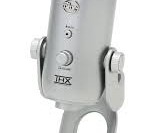May always seems to be a busy time of year where I live. Within about a twenty mile radius there are eight different four year colleges and two different two year colleges. Each weekend seems to be chock full of graduations and graduation parties. This past Saturday I had a chance to go to the pinning for some friends who were finishing up their doctorate in physical therapy. I am extremely proud of all of them, and although I know they are all destined for great things, I will wish them luck anyway. During their pinning ceremony, a class video was shown featuring comments by each of their professors within the departments. Everyone had a lot of great things to say about the class. They shared pearls of wisdom, stories, and reflections over what they saw from these sixteen individuals over the last year. After hearing what each professor had to say I understood why my PT friends did as well as they did: they had great mentors and role models. Except for one. . . When it came time for the department’s management instructor to share her thoughts, the statements she made on screen was one that stuck with me, and not for a positive reason. She informed the class that they would go on to be leaders, but then corrected herself stating that “not all of them” would be, and some would just be physical therapists. Mind you, I am paraphrasing a bit, but I think you get the point. Its hard to believe that the professor of a graduate level program does not understand the difference between management and leadership. While the two might be closely associated by some, one does not need to be in management to be a leader, and just because one is in management that certainly does not make them a leader. During my premanagement days, there were many, many “blue shirts” that I would follow anywhere. Heck, there are still a lot that I would gladly take a back seat to just based on the respect that I have for their abilities which in many ways are better than mine. In order for a person to...
The Podcast

We took the week off last weeks or Labor Day and this week the podcast is back with a short interview that I did on Jamie Davis’ The Medicast where we talk about the show and what it is all about. Regular shows will be back next week! Enjoy! To download the show in MP3 format, follow this link! Otherwise check the show out below: ...
Read MoreFor Leadership

Roughly twelve years ago, AMR and AEV’s Safety Concept Vehicle made its way to Springfield for us to take a look at. It included a number of interesting features like an expanded harness setup to allow providers to move a little more freely around the box while still being anchored. There were mounting brackets for cardiac monitors, and video cameras to monitor both the rear of the truck for backing up, and the passenger side to check for traffic before opening the curbside door. The vehicle itself contained a lot of positives that have been adopted over the years. I see more cameras used in emergency vehicles and I’m a a fan of the checkered or striped patterns on the backs of trucks to make them more visible to oncoming traffic. I have also seen a few more monitor brackets. But where is everything else? When is that ambulance of the future going to get here? Year after year at conference after conference, there will undoubtedly be some ambulance parked on the exhibit hall floor touting itself as the “ambulance of...
Read MoreFor the Field

There has been a lot of buzz over the past week about California’s EMS Bill of Rights. Dave Konig has a great take on it over at The Social Medic that I encourage you to read. American Medical Response has even launched a counter campaign to it complete with the hashtag #LivesBeforeLunch. While that makes me cringe a bit, I want to touch on one line of AMR’s response to the bill that stuck with me. “As written, AB 263 is an unprecedented political power grab, and will heavily penalize private – but not public – employers of EMTs and paramedics.” When I look back at my career with AMR that spanned more than twelve years, I had a lot of ups and downs. Had busy shifts and I had slow shifts. I found myself mandated to work despite being sick, or just needing a day off. Through the highlights and the lowlights of working in a busy 9-1-1 system that amassed roughly 40,000 calls per year, the instances where my 12 hour shifts hit double digits were rare when compared...
Read MoreLessons to Learn

Any time I peruse the pages of EMS related articles I will inevitably come across some service that is trying to take over another service’s area. Diving deeper into those articles usually reveals the same usual arguments. Imagine my surprise when I clicked on an article about the East Longmeadow Fire Department’s move to take over EMS response in the town of East Longmeadow. I should first point out that what I am about to write is meant to represent my own personal views on the state of the industry. I have not inquired about anything having to do with the current staffing of ambulances and volume. What I am reflecting on is the article and just the article coupled with my years of experience in the greater Springfield area. Just to give a little bit of background here, I used to have a dog in this fight. As many of you know, I was a 12-year employee of American Medical Response, the last seven of which as a supervisor. I participated in contract bids for the town, and saw service...
Read MoreRecent Posts
Happy EMS Week!
First of all, I want to say Happy EMS Week to everyone out there. Your dedication might not always been seen by everyone but the important thing is when you go home, you know that you made a difference. Now, we all need to remember and realize that EMS Week is not just about us. EMS week should be a time to recognize the professionals that sacrifice time with their families, friends and loved ones to put the needs of others above their own. EMS is a thankless job and although I feel that as I write this blog post I am “preaching to the choir” it needs to be said again: thank you for everything that you do. If your service is anything like mine, you might be left with a bit of an appetite for more EMS Week activities, but my desire goes above the appreciation for the crews. Although EMS Week was created for us to be the stars we still have a responsibility to the public and we need to use our “15 minutes of fame” not only to appreciate those who go out and “save lives” every day but we need to make sure that we share with those who we serve what we are all about. Let’s put it this way: if you service is not having an open house this week, they are missing out. If there is not an article in the paper not only talking about the great people working in EMS but also describing the struggles that they overcome every day you are being short changed. I’d like to ask you all to make the most of your EMS Week, but also take the time to educate just one person about EMS. When EMS awareness increases then so too will the respect that we all receive from those who we serve. Happy EMS Week,...
Politics and EMS: A Few Lessons
I posed this question the other day on Twitter: “If you offered your local politicians a lesson in EMS, how receptive do you think they would be?” I got a variety of answers some more jaded then others, but it really got me thinking: what would I tell them, and what would I want them to take from what I have to offer? When it comes to EMS, many people both in the community and in positions of power have an attitude of “how hard can it be?” They think if you put two people with a patch on their shoulder in an ambulance and put them on the street, they will pick someone up and get them to the hospital. That is true if you want mediocre service that provides nothing more than a “point A to point B” relocation for people. That, in my opinion, offers virtually nothing to the community. Prehospital response and care is supposed to be much more than that. We have also accepted incorrectly that EMS is a time sensitive business. Faster is better. Fast care means effective care. Not true. Those of us IN the field understand that despite what some might think, lights and sirens do not always offer a safe response, and while they might get our ambulances there quickly there is little benefit to the patient in most cases. Sure, in some having someone there in minutes could be life-saving, but those instances do not occur as often as some might think, but more times than not, I feel that as an industry we have the right tools to guide us in triaging emergencies and when we use them the right way, we do a good job of determining which calls need a fast response and which do not. Contracts and public perceptions, however, have painted us into a corner and ambulances continue to scream from one end of communities to the other lights and sirens blaring. As an EMS provider, I would rather see a highly trained EMT or paramedic standing at my door equipment in hand ready to assess me or one of my loved ones. I’d rather see an EMT take...
Trust Betrayed
I really need to know: at what point did EMS stop being about patients and start being about providers? When did EMS become more about justifying jobs than about taking care of people? And when did scare tactics become an acceptable way of disseminating information to the masses? I am sorry, but I am angry, and I am not willing, as a prehospital provider, to take it anymore. Preying off of the unjustified fears of others is just plain wrong. Telling someone that lesser experienced less equipped EMS staff geared towards saving jobs rather than saving lives is the best choice is like telling your kids there is a monster under their bed to keep them from getting up late at night. Anyone who takes these kinds of action, whether they be a public official, a private company, a fire department, a police department, a union, or anything else should be ashamed of themselves for utilizing such deplorable, unethical tactics. We need to get it through to the public that what is really important to their well-being is that they have strong providers standing at their door when the need for them arises. A truly efficient high performance EMS system realizes the limitations of each of its participants and compensates for those by emphasizing the strengths of the other stake holders with one goal in mind: the effective delivery of prehospital care. They are proud of what they do, and they let everyone know it, and most importantly they are not vindictive and manipulative. They work together as a team. They stand up for each other and they don’t allow bad blood to simmer or go unaddressed because they realize that teamwork is so important. One of the key goals of anyone employed in any branch of public safety should be to acquire the trust and support of the community. It is really sad when instead of rewarding that trust with factual information about what EMS is, what its purpose is, and how it is best delivered, some chose instead to prey on that trust, distribute misinformation (sometimes to the point of it being a blatant outright lie or fabrication) all for their own...
The Medication Crisis – It’s Real
There has been a topic that has been bothering me for quite a while now, and I feel it is time for me to weigh in on it. One of my favorite shows that has ever been on TV was HBO’s miniseries A Band of Brothers, based on Stephen Ambrose’s book of the same name about Easy Company of the 506th Parachute Infantry Regiment in World War II. In one of the show’s best episodes, the company’s medic is forced to ration medications and supplies so as to provide as best he can for The result is him having to hoard morphine for the more severely injured soldiers and carefully consider his treatments and who gets them and who does not. I have watched that particular episode many times and thought to myself that I could never imagine having to make those decisions. I always felt that in medicine, everyone deserved the same care, whether it be in the form of life saving medications, supplies, or pain management. Now, here I am, almost 70 years later, and I am on the verge of being forced to stare at a drug bag with expiring medications that cannot be replaced, and having to choose between morphine and the far superior fentanyl based on what I feel my patient’s needs are. But who really is to blame? One of the greatest tragedies in this country is the profit machine that is health care. It exists on every level from insurance companies to hospitals to manufacturers of medical equipment to the big bad drug companies and even to prehospital ambulance services. In fact, I am not a fan of any ambulance service being referred to as “for profit.” The fact is whether an ambulance service is privately owned, classified as a non-profit, fire based, third service, or any other model that sends out a bill they are, in fact, in the EMS business to make some sort of profit. But I digress. Some drug manufacturers have decided to stop producing certain medications because regulations and quality controls have become so strict that without a significant price increase, the profit that they can make from these drugs becomes little...




Recent Comments